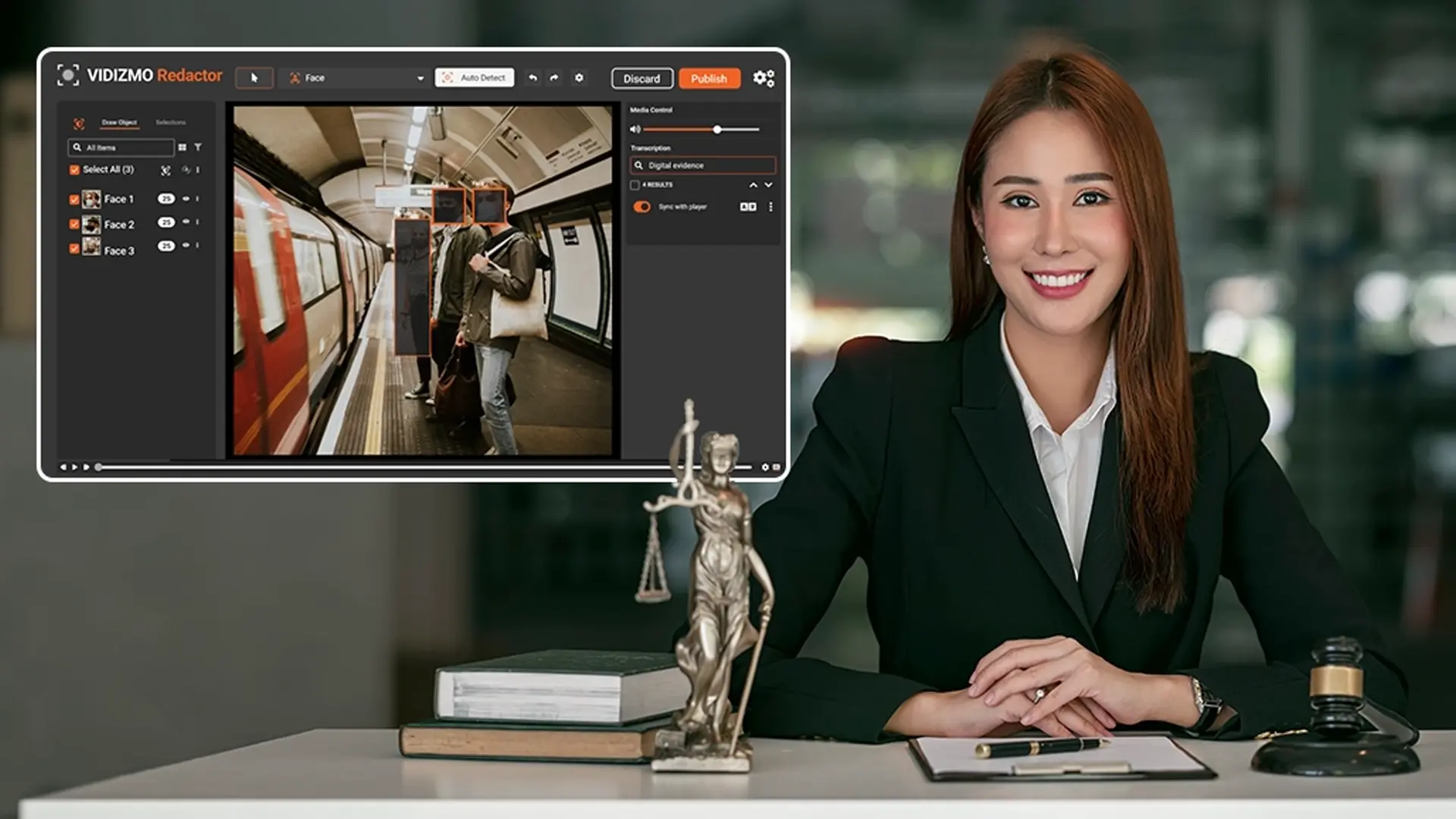How AI Can Streamline Case Preparation for Legal Teams
by Rafay Muneer, Last updated: March 28, 2025

As a legal professional, it may be commonplace for you to face an avalanche of legal documents, research tasks piling up, and looming deadlines.
All the while, your client is expecting a strategic, well-prepared case. But instead of focusing on the intricacies of the law, you're stuck reviewing hundreds of pages of paperwork, manually gathering data, and sifting through unending case files. Frustrating, right?
The fact is that legal teams are often overwhelmed by the sheer volume of administrative tasks they face during case preparation. In a world where efficiency and accuracy are critical, spending time on manual tasks feels like a colossal waste of talent and resources. The good news? There’s a solution that’s not only cutting-edge but is transforming how legal teams operate: artificial intelligence (AI).
Let's explore how AI can help streamline the process of legal case preparation.
Legal Teams Are Drowning in Paperwork and Data
Case preparation in legal practice has always been time-consuming. From reviewing mountains of documents to researching precedents, gathering evidence, and organizing case files, legal professionals spend hours on tedious, manual tasks. These tasks, while necessary, consume valuable time and leave little room for the strategic, high-level thinking that clients expect.
And here's the kicker: the volume of data is growing exponentially. E-discovery alone has made data review a behemoth task, with legal teams combing through thousands, if not millions, of emails, contracts, social media posts, and digital records.
While the stakes are higher than ever, the processes remain archaic. Manual document review is error-prone, slow, and incredibly expensive. Legal teams are stretched thin trying to keep up with deadlines, but no matter how hard they try, they’re often left playing catch-up.
Inefficiency Costs You More Than Time
For corporate legal departments and law firms, the cost of inefficiency is staggering. The more time you spend preparing a case, the higher your legal fees and operational costs. And it’s not just about money—it’s about the missed opportunities, delayed decisions, and burnout that follows.
Attorneys are hired for their strategic insight and their ability to craft winning arguments, not for their ability to scan through hundreds of documents looking for the proverbial needle in a haystack. The lack of efficiency doesn't just hurt your productivity—it also affects your bottom line.
Think about it: How many hours are wasted in manual data review and sorting? How many cases have suffered because your legal team didn’t have enough time to focus on strategy? Worse still, how often have errors slipped through the cracks, leading to costly consequences?
And here’s the real problem—this isn’t going to get easier. As data continues to grow, the pressure will keep mounting. If legal teams don’t find a way to streamline their operations, they risk falling behind competitors who are already adopting AI-driven solutions to leap ahead.
How AI Is Revolutionizing Legal Case Preparation
AI-powered solutions, especially those built for legal teams, are transforming case preparation by automating the most labor-intensive tasks. These tools can handle everything from document review to legal research, giving attorneys and paralegals back precious time to focus on what really matters—developing strategy, advising clients, and winning cases.
Let’s break down the key ways AI is streamlining case preparation:
-
Automated Document Review
One of the most time-consuming aspects of case prep is combing through thousands of documents to find relevant information. Traditionally, this would take teams of paralegals and attorneys hours, if not days, to complete.
With AI, document review becomes exponentially faster and more accurate. AI tools can sift through documents at lightning speed, flagging relevant information, identifying patterns, and even recognizing inconsistencies or contradictions. For example, an AI system might identify a crucial email buried deep within thousands of irrelevant communications—something a human reviewer could easily miss due to fatigue or time constraints.
Law firms can significantly reduce document review time by offloading this grunt work to AI. Thanks to this, legal firms have seen an 80% reduction in documents that need manual review. This means less time spent on menial tasks and more time developing winning strategies.
-
E-Discovery Enhancement
E-discovery can be a nightmare for legal teams, with the growing digital landscape leading to enormous data sets to sift through. AI-powered e-discovery tools use machine learning algorithms to search, categorize, and retrieve relevant digital information quickly and efficiently.
Instead of manually reviewing terabytes of data, AI can analyze documents, emails, social media posts, and even video or audio files to identify crucial pieces of evidence. This not only saves time but drastically reduces the risk of missing key evidence.
Additionally, AI can help prioritize documents based on relevance, allowing attorneys to focus on the most critical information first, streamlining case preparation, and strengthening their legal arguments.
-
Advanced Legal Research
Legal research is another area where AI is making significant strides. Traditional legal research involves pouring over countless books, journals, case law databases, and legal precedents—an undeniably labor-intensive process.
AI legal research tools leverage natural language processing (NLP) to quickly find relevant case law, regulations, or legal opinions. They can analyze vast legal databases in minutes, delivering results with far greater accuracy than a manual search.
For litigation attorneys, this means faster case preparation with up-to-date, reliable research that bolsters their legal arguments. Paralegals, too, benefit from AI research tools, which enable them to handle research-heavy tasks with unprecedented speed.
-
Predictive Analytics for Case Strategy
Beyond the nuts and bolts of case prep, AI offers even more exciting possibilities with predictive analytics. AI can analyze past case outcomes, judge rulings, and even opposing counsel's tendencies to help predict how a case might unfold.
This allows attorneys to craft smarter, data-driven case strategies. Imagine being able to predict the likelihood of a judge ruling in your favor based on previous decisions or knowing in advance which arguments your opposing counsel is likely to make.
For general counsel and litigation attorneys alike, these insights can provide a competitive edge, giving you the ability to make more informed decisions and prepare for every possible scenario.
-
Streamlining Case Management and Collaboration
Effective case preparation isn’t just about research and document review—it’s about keeping your entire team organized and on the same page. AI-powered case management tools can streamline communication, task assignments, and collaboration across your legal team.
With AI, you can automate workflows, track progress in real-time, and ensure that everyone is aligned on their responsibilities. AI tools can also send reminders, flag upcoming deadlines, and even predict resource bottlenecks, preventing delays before they occur.
By improving case management, AI enhances productivity and ensures your legal team is always working efficiently toward the same goal.
-
AI-Powered Transcription for Faster Evidence Review
In legal proceedings, transcriptions of interviews, depositions, courtroom hearings, and witness statements are crucial for case preparation. However, manually transcribing hours of audio or video recordings is both time-consuming and error-prone. This is where AI-powered transcription tools come into play.
AI can automatically transcribe audio and video recordings into text, enabling legal teams to quickly analyze and search through the content for relevant information. With features like speech-to-text technology, AI can identify different speakers, tag timestamps, and even recognize specific legal terminology, ensuring high levels of accuracy.
This speeds up the evidence review process significantly, allowing attorneys to extract key pieces of testimony or statements without wasting time manually combing through recordings.
The Future of Legal Teams Lies in AI
For legal teams grappling with mountains of data, tight deadlines, and ever-increasing client expectations, AI offers a way to streamline case preparation like never before. From automating document review to enhancing legal research and predicting case outcomes, AI tools are empowering law firms and corporate legal departments to work smarter, not harder.
But this isn’t just about making life easier for attorneys and paralegals. It’s about delivering better results for your clients. With AI taking care of the heavy lifting, your legal team can focus on what they do best: crafting winning strategies, advising clients, and driving successful outcomes.
The future of legal work is here, and AI is at the forefront. The question is, are you ready to adopt the technology that will set your team apart from the competition?
People Also Ask
How secure are AI tools for handling sensitive legal data?
AI tools are designed for legal teams to prioritize security and compliance. Most solutions are built with industry-standard encryption and adhere to strict data protection regulations, including GDPR and HIPAA, ensuring sensitive information remains confidential.
Can AI completely replace human legal professionals in case preparation?
No, AI is not a replacement for legal professionals. Instead, it serves as a tool to enhance efficiency, accuracy, and decision-making. Attorneys and paralegals still play a critical role in interpreting findings, developing strategies, and delivering legal advice.
How long does it take to implement AI in a law firm?
The timeline for AI implementation varies depending on the size of the firm and the complexity of the solution. However, most AI tools can be integrated within a few weeks, and many are designed to work seamlessly with existing legal software.
Are AI tools cost-effective for small law firms?
Yes, many AI tools are scalable and priced based on usage or the size of the firm, making them accessible to both large corporate legal departments and smaller law firms. The efficiency gains often outweigh the initial costs of implementation.
Will AI tools for legal case preparation require extensive training?
Most AI legal tools are user-friendly and designed with intuitive interfaces. While some initial training may be required, legal professionals can quickly adapt to these platforms and start seeing productivity benefits almost immediately.
Can AI help reduce the risk of errors in case preparation?
Yes, AI tools reduce the risk of human errors by automating repetitive tasks and flagging inconsistencies or discrepancies in documents. This ensures greater accuracy, especially during document review and e-discovery processes.
How can AI improve collaboration within a legal team?
AI-powered case management tools enhance team collaboration by streamlining task assignments, automating workflows, and offering real-time progress tracking. These tools ensure that team members remain aligned and focused on shared goals.
-
Is AI suitable for all types of legal cases?
While AI is highly effective for cases involving large volumes of data or complex legal research, it may not be necessary for simpler cases. However, it can be a valuable tool for any case requiring document review, research, or e-discovery.
By leveraging AI, legal teams are positioning themselves for greater success, efficiency, and client satisfaction—ensuring that they not only meet but exceed modern legal challenges.
Jump to
You May Also Like
These Related Stories

How to Ensure Statistical Data Privacy in National Statistics: A Guide

Ensuring Privacy and Compliance with Video Redaction for Transport


No Comments Yet
Let us know what you think